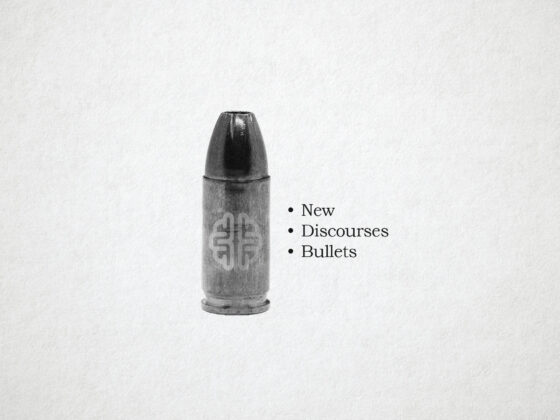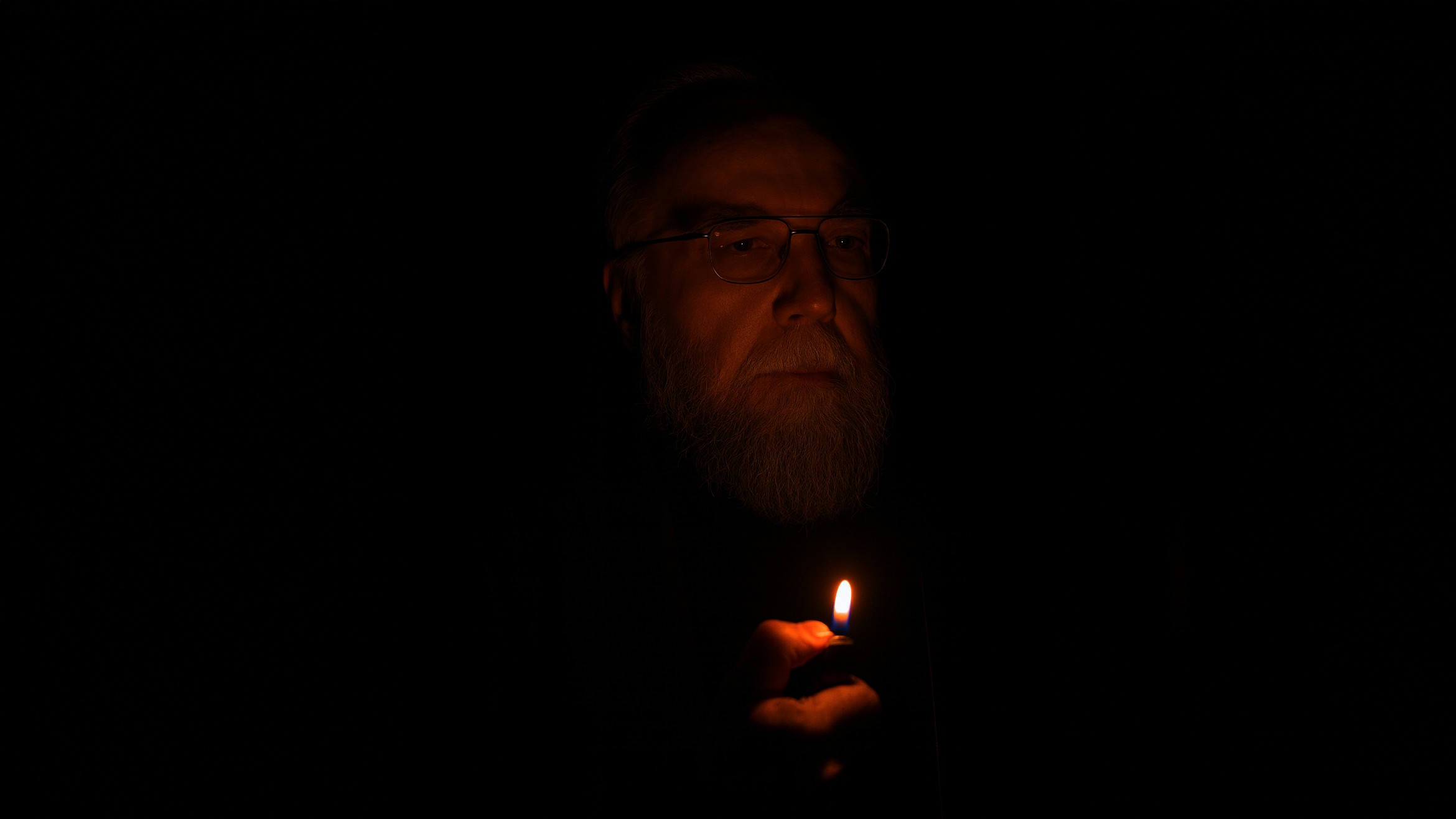OnlySubs Episode 7: Four Roads to Deal with the Woke is now available exclusively for New Discourses contributors on the following platforms:
Facebook
Locals
Odysee
Patreon
Subscribestar
Substack
YouTube Members
Previous episodes of OnlySubs can be found here.











13 comments
When I think of this current age of cancelling and censorship, I am reminded that the powerful have been trying to “cancel” Christianity and censor the Word of God for 2000 years, and yet no one has been successful and no one ever will. (Isaiah 40:8, Matthew 24:35) The road ahead may get a little rough, but for those who stand firm it is paved in His Glory. (Ephesians 6:13-17, Matthew 24:13, Romans 8:31). And that is what gives me strength and hope.
is this adam grimmelt
I’m still evaluating you and your contributors, so I’m not ready to commit much more than my half-assed take on things, but this is just trolling my wallet now.
gmmay70-
Elaborate please. I’d like to hear more of your thoughts.
Oh, nothing much different than I’ve expressed at length elsewhere. I think I count 3 contributors here so far that have such questionable judgment regarding CRT’s influence in society that it gives me serious doubts about the site overall. Lindsay is the only one who seems to get it, though many of the other less frequent contributors do seem clear-headed.
That’s why I haven’t really contributed anything financially (not that I have much) or subbed (I’m not a fan of the podcast format because it’s inferior in every way to reading). But given that many commenters here (particularly you and I) have expressed a serious desire to see more proposed solutions incorporated here, this one podcast looks attractive.
So that’s my dilemma!
gmmay70-
One other thought:
You might want to read this.
I found it this morning. It’s an array of therapists on BPD and rejection. It seems to have some relevant ideas for addressing CRT/CT ad nauseum devotees. It needs fleshing out though.
gmmay70-
Finally, check this. It is from psych today, so not a journal article, but the points are pretty good! Yes, I know a lot of the psych journal pieces are crap.
Also, I have used the following to stop a wokester in his (still the universal pronoun in my mind) tracks:
Work in the conversation “Did you know that in physics black is the only wavelength to absorb light. What does that really mean?” Make it sound like it has philosophical significance, even though it doesn’t. By the way, all others colors in the spectrum reflect light.
The speaker is likely to be dumbfounded and will have no immediate response. Don’t let the wokester refuse to address your question. Since you are discussing one color in relation to others, it will seem relevant.
Narcissists and Borderlines never want to look like they don’t know anything. It challenges their sense of self.
Relatedly, when they say, “I’m sorry you feel that way,” Answer with, “Why would you apologize for something I did? You didn’t hurt me.” See what happens.
Hope you find the above helpful.
Thanks for the links. The psychology today article looked to be more a Strong Horse approach. I think that works on a peer level, if you have the personality that handles confrontation well, but not a situation in which you’re the subordinate.
The upjourney link was useful for personal relationships where you have the power to make those choices, but again, the workplace? Not so much. Having dealt with a malignant narcissist for a boss (in the military, no less), many of those recommendations are just not feasible. In my case it was Strong Horse vs. Strong Horse, but when they have the upper hand because of position, it ultimately boils down to “kiss their ass and get out of dodge as soon as possible”.
It’s the same for CSJ-based training in the workplace. And though the upjourney link was talking mostly about relationships, with a little workplace advice, change the terms around a bit and it reads like a CSJ handbook. It provides further evidence that CSJ is inherently psychological. But not every person promoting CSJ in the workplace is a narcissist either. What of them? I think they are even more susceptible to “No” and the emotional appeal and redirect.
Two interesting pieces I found on this that focus on Diversity Training that also contain a lot of useful information came from a deep dive from your links into the cesspit of Twitter: Here, and here.
The author, Musa al-Gharbi strikes me as firmly on the Left, but also as a clear thinker. In these pieces he knocks it out of the park. Many good observations and recommendations. Lindsay might consider approaching him to make a contribution here. In reading some of his other work, I disagree with him on some things strongly, but he is indeed a heavy hitter and one I would pitch carefully to.
gmmay70-
Question for you. It’s tangentially related to the content of James’ presentation. Should Americans be looking at South Africa for a sense of how CRT, if successful, will work in America? I see some parallels.
I’m only passingly familiar with what’s going on in SA, so I don’t really feel comfortable commenting on that beyond what you say here, the parallels are close. I seem to recall a “Science Must Fall” movement happening in their universities or some such a little while ago that was very Woke-centric, but I don’t know what became of it. There seems to be some rumblings of it on the fringes here.
I feel pretty much the same way, honestly.
gmmay70 and GenXer-
Thanks for your comments. The idea I didn’t articulate about SAs’ parallels with America revolve/d around the white farmland seizure that started in the 1970s and continued until 2000. The seized farmland was redistributed to black families.
Not surprisingly, most black owned farms failed because the had no knowledge about managing a profitable farm.
Anyway, lack of/insecure private property rights for white individuals in SA is still problematic. After hearing “you didn’t make this”, “slaves built America (1619), and related CRT/CT ad nauseum notions in America, I’m wondering how safe private property rights in America will be.
The above may sound overly dramatic. However, I think it’s quite important to examine the array of possibilities when faced with a problem.
Oh back to SA farms for a moment. Eventually, black farmers began to realize they needed the knowledge white farmers had. A cooperative effort of sorts began. It’s still rocky.
That reminds me of the Federal government’s Forty Acres and a Mule policy after the Civil War. It didn’t long for all that land to end back up in white hands. Blanket emancipation was noble, but releasing four million people who were uneducated, unsocialized, and otherwise unequipped-to-function in the society they were now considered equals set the stage for the decades long disaster that followed. We still deal with the echoes today.
You’re not being overdramatic. For years we’ve been saying many things can’t happen here which indeed have and are. Given the growing acceptance and desire for socialism (though many aspects of our economy and government are already socialized, the rest corporatized), not to mention the execrable ruling in Kelo, I share your concerns about property rights. But that’s another discussion.